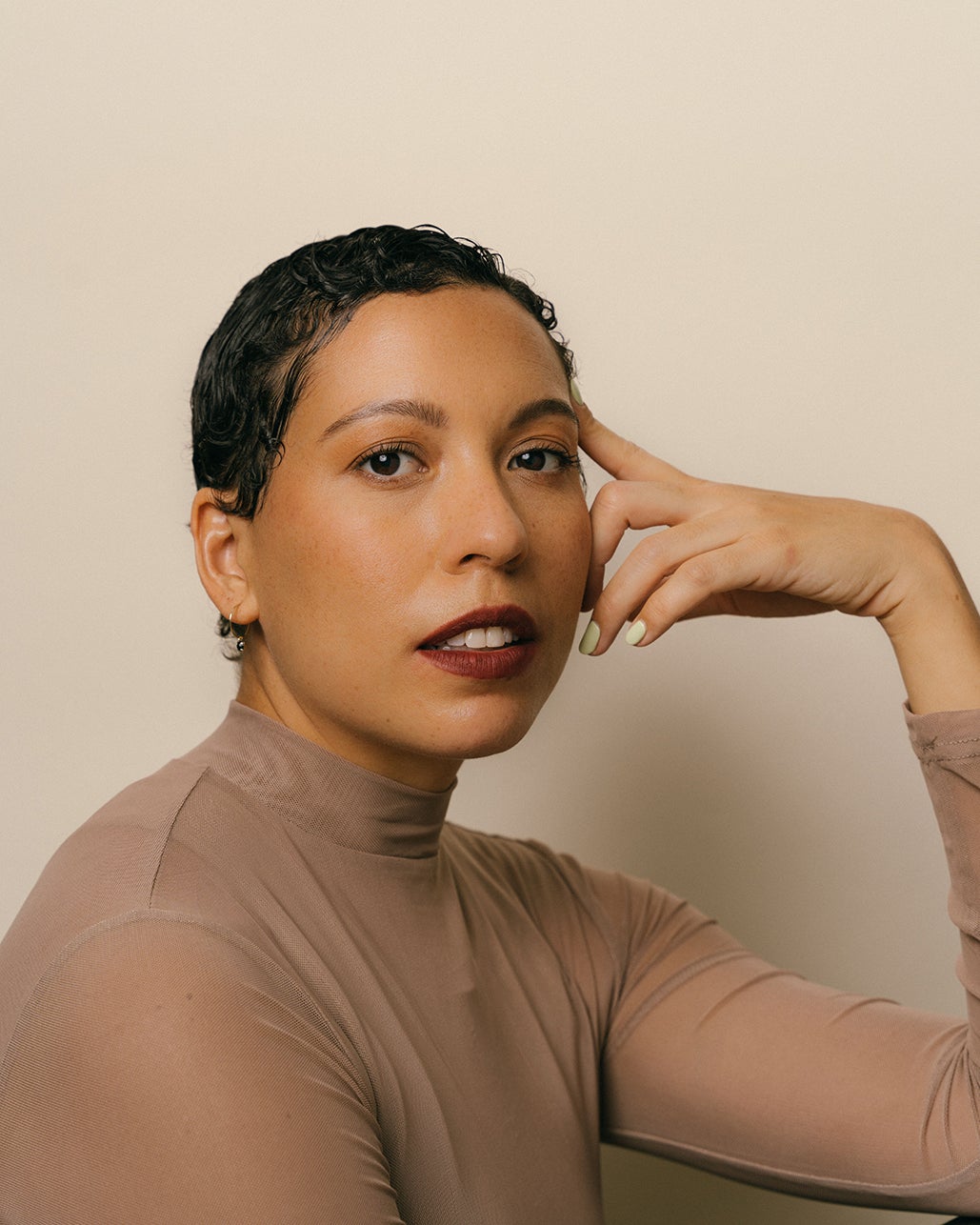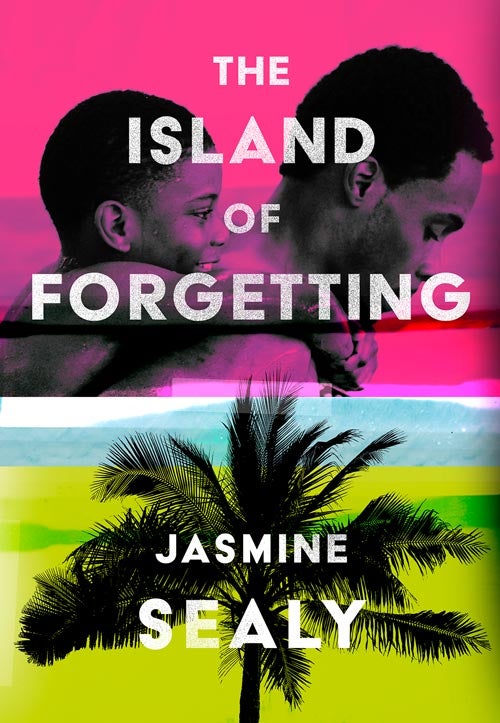The Independent's journalism is supported by our readers. When you purchase through links on our site, we may earn commission.
Author Jasmine Sealy: ‘There’s something sinister in tourists calling all Bajan people “friendly”’
The Bajan-Canadian author speaks to Nicole Vassell about her debut novel ‘The Island of Forgetting’, Caribbean stereotypes and the highs and lows of writing a book


Jasmine Sealy was writing her first novel when she found out that she was pregnant. She was adamant that her book would be delivered first. It was October 2019 and she was in the final stages of her creative writing master’s degree at the University of British Columbia. The deadline was March, but her baby was due in June; time was not on her side. Even though her morning sickness made it impossible to look at a screen without feeling nauseous, she dedicated every waking moment to getting it done, by any means necessary. “I had no choice,” she explains from her Vancouver home, deadpan. “I needed to graduate because I wasn’t about to pay another semester’s tuition.”
Thankfully for her financial and personal plans, Sealy’s thesis was not only approved by her supervisors, it won her university’s manuscript competition and scored her a book deal with HarperCollins in June 2020. Nearly two years later, The Island of Forgetting is arriving in bookshops. Set in Barbados, then Canada, it spans 60 years, telling the story of a family that is convinced that they’re haunted by a traumatic incident that occurred many decades ago. Through narrators from four different generations, we see the ways that this deadly secret has a hold over them.
Though based primarily in the West Indies, the story has thinly covered roots in Greek mythology – character names such as Iapetus, Cronus and Nautilus are immediate hints. But rather than this link being down to some long-held fascination with ancient folklore, Sealy says it was falling into a late-night Wikipedia rabbit hole that inspired her to bring Ancient Greece to contemporary Barbados. “I was curious to see if there was a link between calypso music and the Greek mythic character,” she says, in her crisp Bajan-Canadian accent. Even on Zoom, Sealy is tremendous company: as cheerful and ebullient as her lilac jumper. It’s 8am in western Canada, but due to her now having a toddler, she assures me that she’s been awake for hours.
Although her research couldn’t find a link between the style of Trinidadian music and the nymph goddess of Homer’s Odyssey, it sparked an interest that she found impossible to shake. “I became captivated by this idea of a seductress, a temptress, who lives on this island and a man who ‘falls victim to her powers of seduction’,” Sealy remembers. “I thought there were some really interesting parallels there in the way that we hypersexualise Caribbean women – not just in the media, but part of the tourism product.”
One of the novel’s narrators, named Calypso, works at her family’s hotel and thrives off of the lustful gazes of the white men who visit it. From her perspective, there’s power in seducing them and leaving them love-drunk and loath to return to their home lives. For Sealy, Calypso’s section is the heart of the novel, from which everything else branched out: “She became a really good lens through which I could talk about my own feelings around tourism and what it means to live on an island where your home is a product for people.”
The daughter of a Black Bajan father and a white British mother, Sealy was born in the UK but grew up in Barbados from the age of two. At 18, she left the island to study in Toronto and has lived in Canada ever since. But when Sealy talks about home, there’s only one place she means. “I think there’s just this kind of intrinsic sense of belonging and of rootedness that you have when you spend your childhood and your teen years at a place.” With such unbreakable ties to Barbados, Sealy felt it only natural to set her first novel there. In her teens, she worked as a waitress near the port, where she interacted with cruise ship tourists from the US and elsewhere on a daily basis. As a result, she has first-hand experience of the performance of culture as part of your job.
“A cliché that a lot of tourists say about Barbados and why they like to come is that the people are very friendly,” she says, brow slightly furrowed. “I think there’s something quite sinister about that, because it’s like you aren’t allowed to have a bad day or to express any sort of animosity or anger because your friendliness is a product for consumption; something on which your livelihood depends.”

As well as grappling with the dark side of holiday culture, The Island of Forgetting flows between themes of disrupted motherhood, alienation, sexuality and heartbreak. The work of pulling it all together wasn’t as effortless as it feels to read. “It was definitely not a romantic process,” she tells me. “I have friends who say, ‘Oh, the novel just came to me.’ That was not me!” she shakes her head, with eyebrows high raised for emphasis. “Every word was a struggle. There were days where I was like just sitting in front of the computer and I was like, all right, just get to 1500 words, or whatever my goal was that day, you know?”
She’s open about how gruelling it is to pen a novel, but Sealy’s passion for writing has been with her from a young age. Coming from a family where traditional careers were the norm (“My parents have PhDs, my aunt is a lawyer, my grandfather was an engineer”), it took years for her to fully find the courage to pursue creative writing professionally. “I had this very internalised sense of what achievement would look like for me,” she explains. “Achievement looked like a higher advanced degree and a career that had a title. I wanted to be able to say: ‘I am a lawyer’ or ‘I am a doctor’. So I really struggled with that for a long time.”
Still, after studying international development and planning to work in diplomacy, she knew that if she never gave writing a go, she’d always regret it. And of course, the risk has paid off. But she remains level-headed about the nature of being a debut writer.
“This is very much my first novel. And I’m very proud of it – I think it’s great! But I do know that it’s not gonna be the best thing that I ever write.” How interesting, I note, that she’s able to acknowledge her hard work without putting pressure on how it’s received? “I think a lot of new writers can get kind of caught up in this idea that everything has to be perfect, or the most amazing thing ever,” she replies. “And it’s like, well, no, you’re a beginner. If you were starting out in another career, you’d be an entry-level person, learning as you go.
“You need to kind of let go of the idea that anything that you put down is going to be perfect. Nothing ever is. But it’s the best work that you can do at this moment.” She shrugs lightly. “And you can’t ask anything else of yourself than that.”
With her first book nearly available worldwide, Sealy has a follow-up in the pipeline – that is, when she has the time to write it again. “I need another thesis deadline to make me actually do it,” she says, laughing. “Or to get pregnant again!”
‘The Island of Forgetting’ is out on 26 May
Join our commenting forum
Join thought-provoking conversations, follow other Independent readers and see their replies
Comments


Bookmark popover
Removed from bookmarks